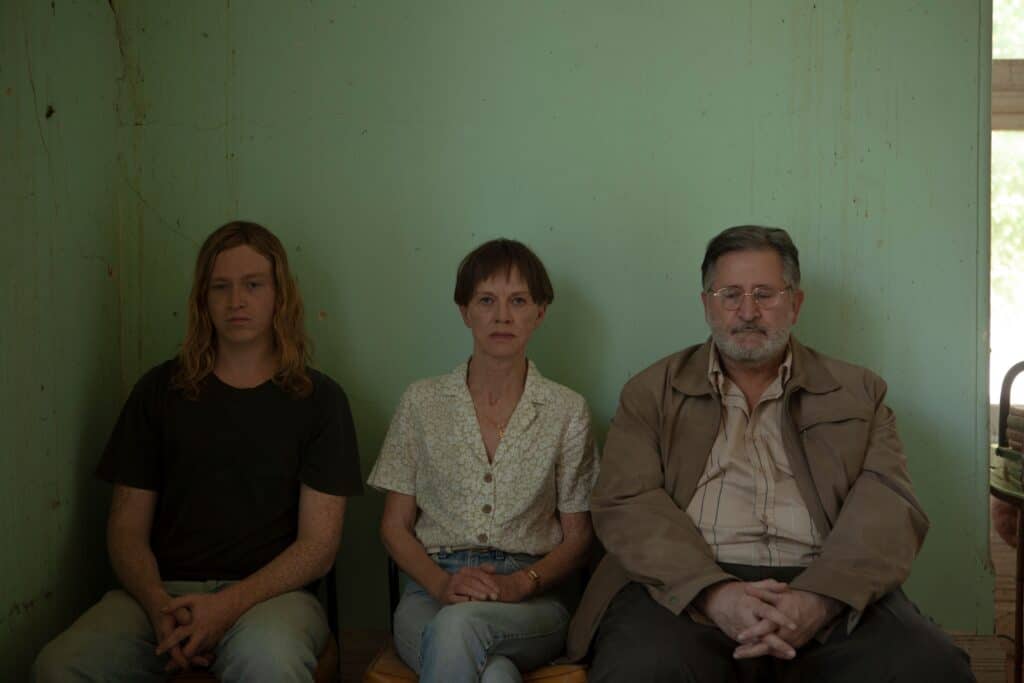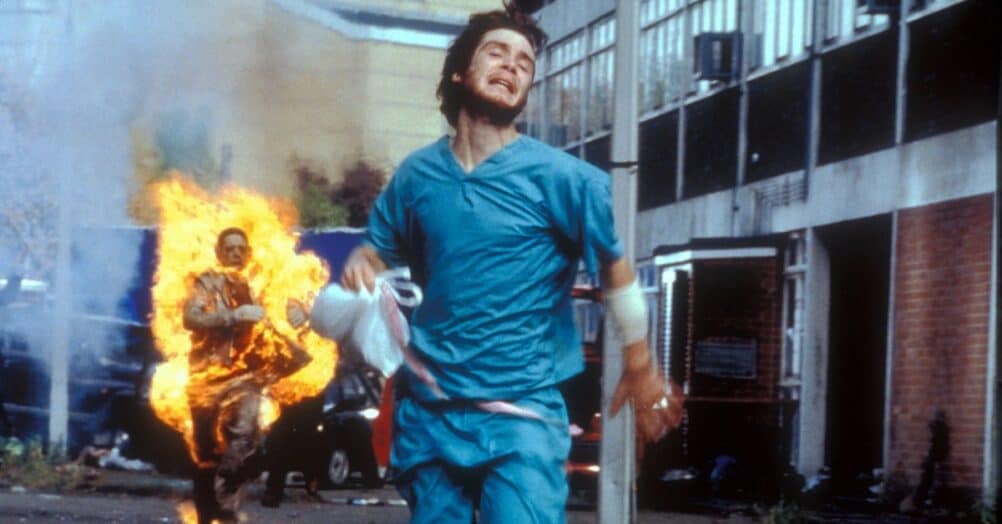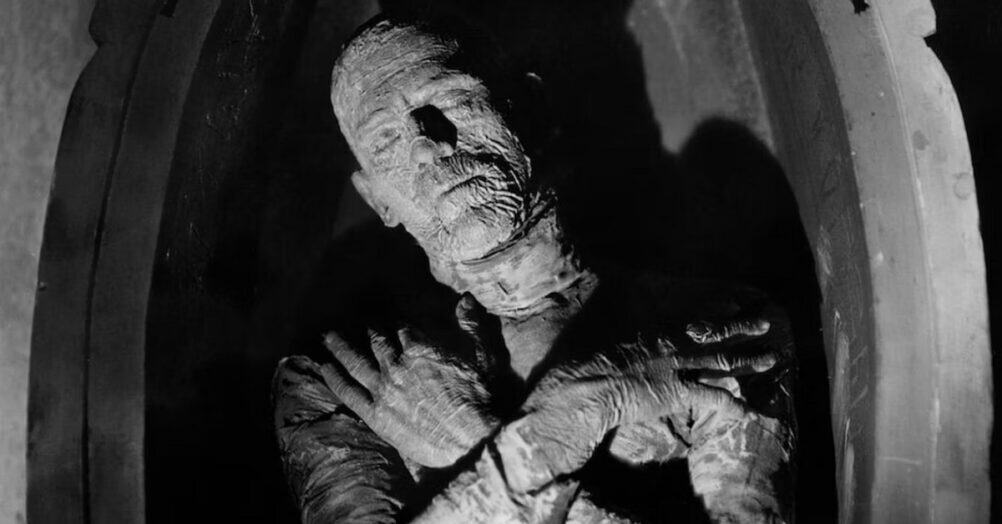PLOT: Nitram explores the events leading up to the real-life devastating mass shooting in Port Arthur, Australia. It’s an intimate depiction of the man and the events that led up to the tragedy.
REVIEW: When you go into a film that covers a mass shooting, it’s clear there is going to be some extremely difficult subject matter. Whenever the topic of mental health is broached in cinema, there are hard truths to face. But if you’re concerned about seeing a tragic shooting on screen, don’t worry, the events don’t unfold for the audience to witness. This is more of a preamble for how someone could commit such atrocities. But that doesn’t make the journey any less harrowing.
Set in Australia in 1996, we follow Caleb Landry Jones‘ Nitram, a man who struggles to connect with others. While this is a movie about a future mass shooter, we are never given his name and his actions are never justified. Despite being the main character, his identity is never a concern. Instead, the focus is on the inaction of those around him. Nitram lives with his parents (Anthony LaPaglia and Judy Davis) and you can feel how much the toll of raising him has had on them. They’re trying their best in an incredibly difficult situation and don’t deserve any of their struggles with their son. Davis’ Mum almost seems to understand the monster that her son is, yet doesn’t know how to deal with him. She’s at the end of her rope. Her husband is dealing with mental struggles of his own, so he’s far from understanding his sons’ problems.
Nitram forms a strange bond with a local recluse named Helen (The Babadook‘s Essie Davis) who gives him at least some purpose in life. Using her as a surrogate mother, he starts to carve out a bit of an identity for himself. Their interactions are tough to watch as it’s clear that neither has their wits about them. But when Nitram’s erratic behavior causes Helen to tragically die, he’s left to pick up the pieces of his life.

Mostly a character study, the real strong point of the film is in the way they interact. Whether that’s Nitram interacting with his parents, a gun store owner, or even some old classmates, seeing how little he’s able to cope provides clues for his mental decline. Landry gives it his all here and the native Texan plays a very convincing Australian. There are some deeply unsettling moments as he just stares out, trying to make sense of the world. He may be silent on-screen, but there’s so much happening behind his eyes. It’s exemplified when Nitram reaches up towards a nest of bees, merely out of curiosity and not realizing he can get stung. He doesn’t understand how the world works or the consequences of his actions. There’s no fear present, even when there should be.
Like his prior film True History of the Kelly Gang, Justin Kurzel has shown he has an understanding of presenting Australian history in a deeply impactful way. The film is beautifully shot by Germain McMicking, whose handheld camerawork helps connect with the raw emotion of the characters on screen. The slow methodical pace helps you to really take in Nitram’s quirks, that by the time the third act comes around, you know you’re hardly even looking at a human being anymore: just a man who wants to garner any reaction he can.
And don’t get me wrong, there is no sympathy in regards to Jones’ character. We’re able to see how lost he is, and how much he desperately needs help. But that doesn’t make him any less of an awful human being. If anything, the movie serves as a lesson of what happens when we don’t provide the right mental services to those that need them. Because while the tragedy of these events happened 25 years ago, its message is relevant today. The film certainly won’t be for everyone, but Jones and Judy Davis provide must-see performances. The surplus of awards the movie has picked up from Australian Awards shows, and even Cannes, have proven that this is one worth checking out.
Nitram is now in theaters, digital rental, and AMC+





















Follow the JOBLO MOVIE NETWORK
Follow us on YOUTUBE
Follow ARROW IN THE HEAD
Follow AITH on YOUTUBE